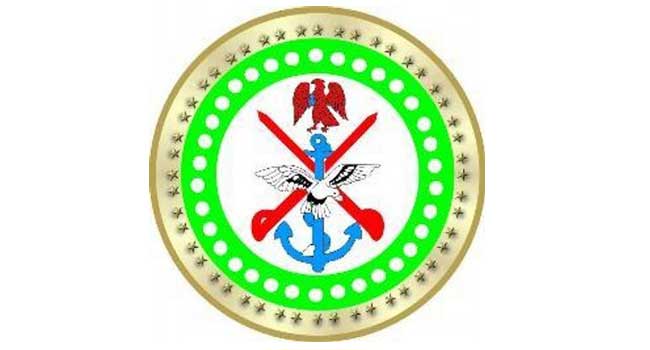Nigerian Military Denies Supporting Payments to Bandits — Defence Headquarters
The Nigerian Armed Forces have distanced themselves from any policy involving the payment of money to criminal groups, particularly bandits operating across various parts of the country.
Major General Emeka Onumajuru, the Chief of Defence Operations, stated that the military does not support or participate in any arrangement that involves financial incentives to armed groups.
“The Armed Forces of Nigeria do not support the payment of money to criminal groups. We are not part of that arrangement,” Onumajuru said. “Experience has shown that such actions do not work.”
Instead, he highlighted the existence of a government-led Disarmament, Demobilisation, and Reintegration (DDR) programme for individuals who willingly surrender and show genuine remorse. The initiative, coordinated alongside the Ministry of Justice and the Office of the National Security Adviser (ONSA), is designed to reintegrate repentant fighters after they undergo a thorough profiling process to determine the extent of their involvement in criminal activities.
“The DDR programme provides an alternative path for those seeking to renounce criminality. Once weapons are surrendered, the individuals are carefully profiled. Those found to be seriously culpable face legal consequences, while others are transferred to DDR centres — such as those in Gombe and Zamfara — for rehabilitation,” he said.
Onumajuru emphasized that the initiative is part of a national framework under Operation Safe Corridor, primarily targeting the North-East and North-West regions.
He also stressed the need for community involvement in strengthening border security, noting that local populations must feel a sense of ownership in protecting their territories.
The military’s clarification comes amid growing public debate over alleged government policies perceived to be lenient toward bandits.
On Sunday, former Kaduna State Governor Nasir El-Rufai criticized what he described as a “kiss-the-bandits” policy, accusing the federal government of indirectly empowering criminals through regular payments and food supplies under the guise of non-kinetic approaches.
“What I will not do is pay bandits, give them a monthly allowance, or send food to them in the name of non-kinetic solutions. It’s nonsense; we’re empowering bandits,” El-Rufai said. “This is a national policy driven by the Office of the National Security Adviser, and Kaduna is part of it.”
However, the Office of the National Security Adviser has firmly denied the allegations.
In a statement issued Monday, the ONSA described El-Rufai’s claims as “baseless” and stated that neither the agency nor any other arm of the current administration has ever authorized ransom payments or financial inducements to criminal groups.
“At no time has the ONSA, or any arm of government under this administration, engaged in ransom payments or inducements to criminals,” the statement, signed by Zakari Mijinyawa on behalf of the ONSA, read. “El-Rufai’s allegations are not only false but also contradict verifiable facts on the ground.”
The government has repeatedly urged citizens and institutions not to engage in ransom payments, warning that such actions only serve to incentivize further criminality.




